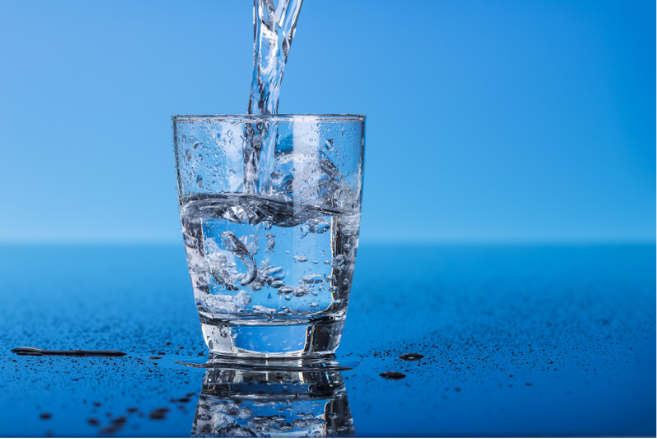Water Purification System Options for every single Budget Plan and Home Size
Water Purification System Options for every single Budget Plan and Home Size
Blog Article
Why a Water Purification System Is Necessary for Clean, Safe Water
Accessibility to tidy, secure water is a basic human right and a cornerstone of public health and wellness. However, the presence of dangerous contaminants such as virus, heavy metals, and chemical contaminants in our water raises significant problems regarding health and health. A water filtration system stands as a crucial remedy to reduce these dangers, guaranteeing that individuals and neighborhoods can access secure alcohol consumption water. Understanding the details of these systems and their various approaches is vital, especially as we take into consideration the implications for health results and environmental sustainability in our lives.
Relevance of Tidy Water
Access to tidy water is a fundamental necessity for human health and wellness and wellness. It is vital for maintaining life, sustaining health, and preserving general public health and wellness. Water Purification System. The accessibility of risk-free drinking water substantially decreases the risk of waterborne conditions, which pose a substantial risk to areas worldwide. Infected water can bring about major health and wellness problems, consisting of intestinal health problems, cholera, and dysentery, especially in at risk populaces such as youngsters and the elderly.
Furthermore, tidy water is essential for sanitation and health techniques, which are vital in stopping the spread of contagious illness. Ample water supply sustains correct sanitation facilities, advertising a much healthier atmosphere. Additionally, access to risk-free water influences socioeconomic factors, as it allows areas to involve in commercial and agricultural tasks, inevitably adding to economic development.
In many regions, the absence of tidy water aggravates destitution and inequality, additional hindering development toward sustainable development objectives. Making certain access to clean water is not just a public health and wellness imperative but also a cornerstone for social equity and financial growth. Efforts to boost water quality and framework have significant advantages, promoting much healthier areas and boosting lifestyle.

Typical Pollutants in Water
Guaranteeing the accessibility of tidy water is undermined by various impurities that can endanger its safety and high quality. The presence of pathogens, such as bloodsuckers, infections, and microorganisms, positions considerable health threats, specifically in areas doing not have appropriate cleanliness. These microbes can lead to waterborne illness, leading to severe ailment or perhaps death.
Chemical contaminants also offer an essential worry. Heavy steels, consisting of lead, mercury, and arsenic, often enter water products via commercial discharges or corroded plumbing. These compounds can accumulate in the body over time, leading to long-term health issues such as neurological damages and developmental conditions.
In addition, farming drainage introduces pesticides and plant foods into water supply, which can interfere with ecosystems and adversely impact human wellness. Nitrates, typically located in fertilizers, can trigger serious problems like methemoglobinemia, specifically in infants.
Benefits of Water Filtration Solutions
Acknowledging the crucial requirement for safe drinking water, water filtration systems use a myriad of benefits that boost public health and wellness and ecological sustainability. Primarily, these systems successfully eliminate hazardous contaminants, including bacteria, infections, heavy metals, and chemicals, guaranteeing that the water consumed is without toxins and microorganisms. This reduction in contaminants considerably reduces the danger of waterborne illness, promoting overall area health.
Along with wellness advantages, water purification systems add to ecological sustainability by minimizing reliance on bottled water, which frequently creates extreme plastic waste. By using a filtration system, homes can decrease their carbon impact and add to a more sustainable ecosystem. These systems can boost the preference and odor of water, making it a lot more tasty for daily intake.

Various Types of Purification Techniques

One common technique is reverse osmosis, which uses a semi-permeable membrane layer to separate water from dissolved impurities and solids. This process properly decreases impurities, consisting of hefty metals and chemicals. Another extensively made use of strategy is ultraviolet (UV) disinfection, which employs UV light to neutralize bacteria and infections, providing them safe without making use of chemicals.
Triggered carbon purification is one click over here now more preferred approach, using carbon to adsorb organic substances, chlorine, and undesirable odors, enhancing preference and odor high quality. Purification, a process that involves boiling water and condensing the heavy steam, properly eliminates minerals and pollutants but may require even more power contrasted to other methods.
Ion exchange is frequently used to soften water by changing calcium and magnesium ions with sodium or potassium ions. Each technique has its limitations and advantages, making it important to comprehend their functionalities and effectiveness in attending to particular water top quality concerns - Water Purification System. Eventually, picking the suitable filtration method is important for guaranteeing risk-free and tidy alcohol consumption water
Choosing the Right System
Picking an ideal water purification system requires careful consideration of numerous aspects, including the particular pollutants present in the water system, the volume of water needed, and the preferred filtration approach. It is essential to perform a water high quality examination to recognize pollutants such as microorganisms, heavy steels, or chemical pollutants. This information will guide you in choosing a system that effectively targets those specific impurities.
Next, analyze your family's daily water usage to determine the system's capacity. Solutions are offered in different dimensions, from point-of-use filters for alcohol consumption water to whole-house systems that purify all water entering your home.
Furthermore, think about the filtration technique that finest fits your requirements. As an example, reverse osmosis is very efficient for getting rid of a large range of pollutants, while UV filtration is superb for eliminating microorganisms.
Final Thought
In conclusion, the execution of water purification systems is critical for ensuring access to secure and clean you can check here water. These systems efficiently eliminate harmful contaminants, consequently reducing the danger of waterborne diseases and boosting public health. Furthermore, they contribute to environmental sustainability by minimizing reliance on bottled water. By comprehending the relevance of clean water and the advantages of various purification approaches, areas can make educated decisions to secure their health and promote socioeconomic stability.
Acknowledging the vital requirement for safe alcohol consumption water, water filtration systems provide a myriad of advantages that enhance public wellness and ecological sustainability.In addition to wellness advantages, water filtration systems add to ecological sustainability by reducing dependence on bottled water, which commonly generates too much plastic waste. Eventually, the adoption of water filtration systems is a proactive step towards making certain tidy, secure water for future generations while guarding public health and the setting.
Selecting a proper water purification system calls for mindful consideration of different aspects, consisting of the certain pollutants existing in the water supply, the quantity of water required, and the wanted purification approach.In verdict, the application of water filtration systems is important for ensuring access to clean and risk-free water.
Report this page